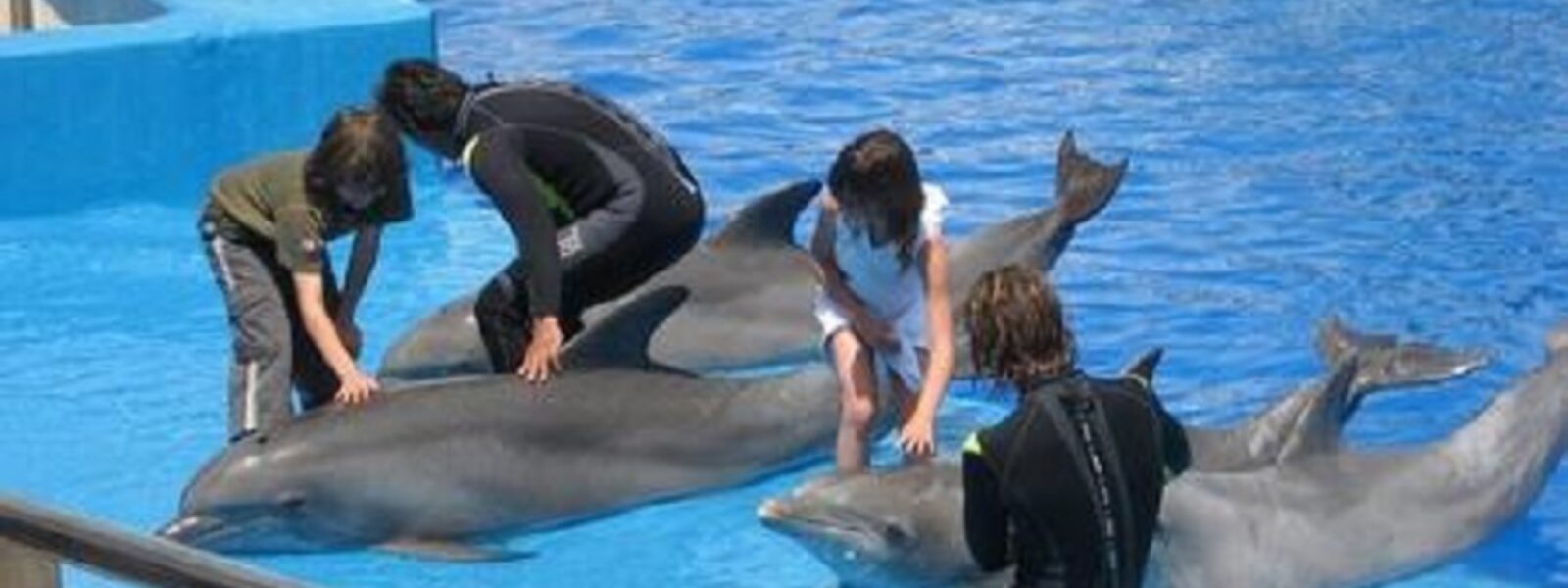

Proponents of captivity are often quick to point out how “happy” captive dolphins are, while simultaneously denying their emotions and intelligence to justify their ongoing confinement. A recent study continues in this long and frustrating tradition.
Published in the journal Applied Animal Behaviour Science, the study set out to discover what activities captive dolphins, being held in Parc Astérix in France, seemed the most enthusiastic about. From the limited number of activities the dolphins are allowed to engage in within the confines of concrete tanks, researchers chose three to compare: dolphins interacting with human trainers, interacting with toys, or simply with one another. The latter was a control factor for the study.
The results: the dolphins were found to "look forward the most” to interactions with familiar humans, leading researchers to conclude that “better human-animal bonds equals better welfare".
However, there could be alternate explanations for the dolphin’s apparent enthusiasm for human trainers. Captive dolphins are never given the luxury of deciding when to eat (it is always humans who toss them dead fish), so it’s possible that dolphins appear more enthusiastic towards humans because they are chronically hungry.
Dr. Susanne Schultz, who has studied wild marine mammals, also raised questions about the study, telling the BBC that “just because a dolphin interacts with you doesn't mean that [they] would choose that lifestyle if [they were] given a choice."
This denial of choice is the crux of the issue, forming the basis of a captive dolphin’s daily experience. Human trainers appear to think nothing of it, perhaps assuming that dolphins are incapable of noticing when their desires are habitually denied. Dolphins born into captivity will never know a life where they get to choose who they become, who they spend time with, what they eat, or where they travel – this likely contributes to the high rates of death, disease and stress in captives.
These unfortunate individuals deserve, at the very least, to not be forced to perform until they day they sicken and die. They deserve to feel the rhythms of the ocean where they truly belong. They deserve to be sent to seaside sanctuaries, and not be used as profit-generating assets in captive facilities, teaching children that humans should dominate dolphins and other species.
This study will likely aid the captivity industry, which unfortunately continues to grow in the United States to this day, despite increasingly legislation and public backlash. Sign our petition to help stop the captivity industry for good.